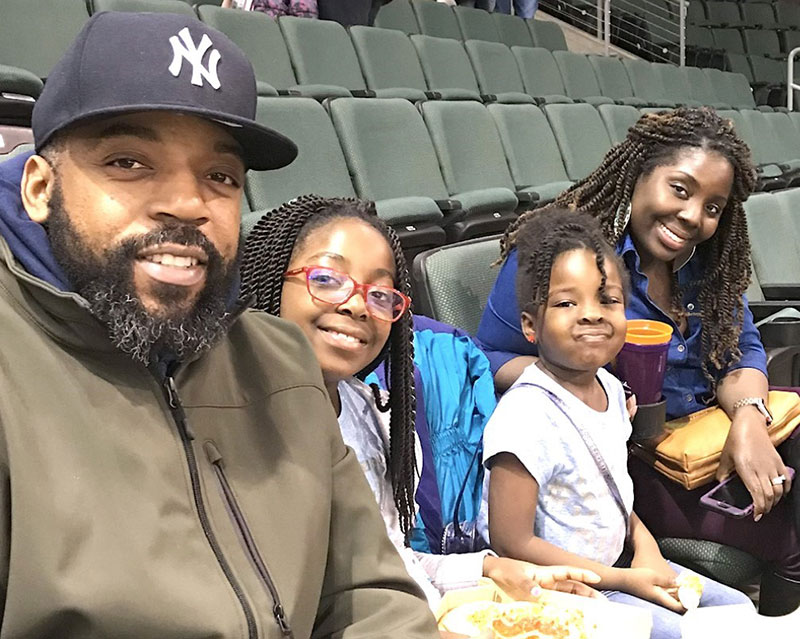Prostate cancer survivor asks men to speak up for their health
How one survivor is advocating for support and an end to disparities
February 2, 2022

When it comes to prostate cancer, Mical Roy is passionate about awareness of family health history and growing emotional support for men — especially Black men.
Roy never imagined that he would be diagnosed with prostate cancer at age 37, but a routine health check-up in 2018 turned out to be an eye-opening visit. The doctor discovered high prostate-specific antigen (PSA) levels and referred him to a urologist.
“When [the urologist] said that I had prostate cancer, I actually missed it. I didn’t even hear him say it,” Roy said. “But my wife did.” And from there, Roy’s treatment journey began.
Roy’s cancer was initially diagnosed as stage one. But after undergoing a radical prostatectomy — a surgical procedure to remove the entire prostate — he was told that it had actually been an aggressive stage two cancer. Since then, he’s been living with no evidence of disease and follows up regularly with his doctor.
Raising awareness about prostate cancer
While prostate cancer deaths have dropped substantially in recent decades among all men, Black men are still twice as likely as white men to die of the disease, and they still have the highest prostate cancer mortality among all U.S. population groups. After Roy’s procedure, he learned from family that his uncle had been diagnosed with prostate cancer five years earlier. Roy said that for many Black men, including him, work and family come before their own health and visiting the doctor. He added that had his family talked more about their health history, he could have acted sooner in his own care.

Roy urges all men – especially men of color – who have been diagnosed with or survived prostate cancer to speak out about their experiences. Highlighting personal stories can lead to better awareness of the disease and the need for screening, which is recommended for men with a family history of prostate cancer.
“The overarching theme is visiting the doctor and staying up on your health. It’s better to know early than not know at all.”
Mical Roy
“When I started advocating, I wanted to speak to Black men, but then I realized that my message is to all men, because all men are bad about going to the doctor. That’s why early detection is important and having people around you who you know you can be vulnerable with. We’re just not used to talking about how we feel, so I would encourage men all over to seek support,” Roy said.